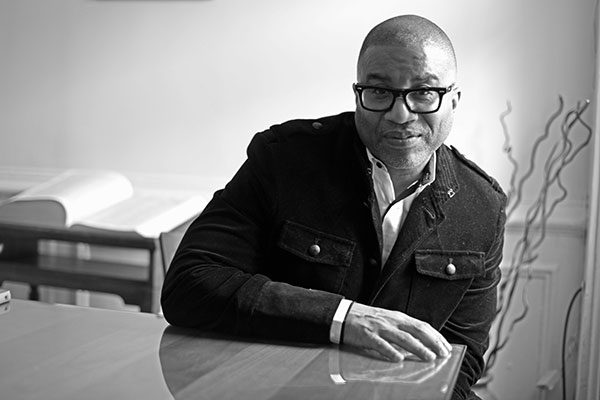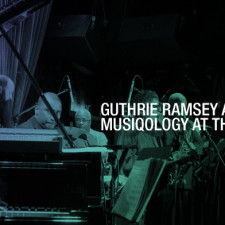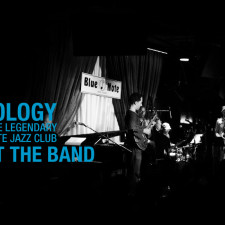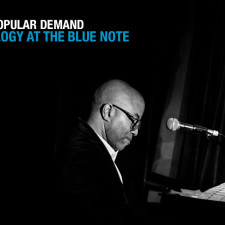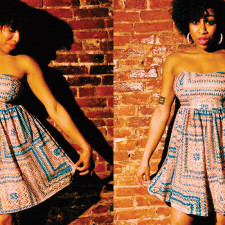Black Music Month, Day #17
Scoring film has been a goal of mine for a long time. I routinely teach how music enhances the storyworld of a film and how viewers have been socialized to internalize and unconsciously respond to these musical codes. Hip-hop films and their soundtracks, for example, constitute my primary mode of dealing with hip-hop as a generic code in my book Race Music: Black Cultures from Bebop to Hip
Hop. But that’s just analyses and cultural criticism. Recently, some great opportunities have been materializing to do some sound-tracking itself (rather than just theorizing about it), and it’s thrilling.
So, my friend and colleague at the University of Pennsylvania, Tukufu Zuberi, a demographer by day and filmmaker by night, calls recently with agitated excitement in his voice. Just back from a trip to Bogata, Columbia, he starts talking about his latest idea to raise funding to complete the final components of his film Africa and the World. The film is a creative and cutting-edge mediation culminating twenty-five years of his research and activism on the continent. Five minutes into his rumble and ramble about something called Kickstarter—“wait have I told you about this?” he asks. “No.” Something tells me its time to get my legal pad out and start scribbling. (Some of you have friends like this, I know). Click and check out his pitch about this important film.
When the other shoe dropped somewhere in the middle of the conversation, I was part of a small team—writer, cameraman, editor, composer, and engineer—and had to turn around a score for a pitch film that would be used on the fundraising platform Kickstarter. Fortunately, we’ve been talking about this film for the last five years, and in particular about our philosophies about music, music licensing, and musical affect in cinema. I wasn’t starting from scratch.
The film would be short and to the point. Sonic organization had to work on the viewers without calling attention to itself as discourse. It had to, in my view, suggest a generalized “Africa” to western listeners; it had to suggest an African American’s take on the subject; and it needed to embody some intrinsically interesting aesthetic elements that would work in and outside the world of this film.
After thinking about what would work generally, I called one of the engineers I work with regularly, Mylon Jones, whose operation The Muzik Store Recording Studio is in Swathmore, Pennsylvania. Great!—he was available to help me turn this around. (TZ, having assembled his crew, was already filming). Working in Logic Pro 8 and Protools 8, we discussed my basic ideas and went at it. A protégée of my most consistent producer, Jerry ThompSon (JatWorld Studios), Mr. Jones, who is mild-mannered, efficient, and with hints of clairvoyance, suggested, as we always do, to start with the basic beat, in this instance, a drum loop from Logic. From there, I added a funky/fusion Fender Rhodes eight-bar progression that sounds like a neo-soul-ism because of the non-diatonic chord that ends it. The Rhodes was generated in Sample Tank, a sound module from IK Multimedia. I layered in two elements of “padding,” which you might think of as the “pot liquor” in this soundscape: a low string/digital “human” voice and mellow strings. Three melodic gestures complete the track. A wooden flute in the opening is a non-verbatim nod to Herbie Hancock’s Head Hunter project, a piece that I know has been speaking to TZ since he began thinking about music and his film. The second, a counter melody “moog-ish” line adds a 1970s buff to the track’s overall feel. Finally, I played Rhodes solo lines to stir in a little bite and added a little scratching for garnish.
Although I thought that this soundscape was already sparse—I could have packed a lot more in—you’ll hear when you compare the music in the film above to my original score below that various elements were moved and shifted around in the editing process to assure that the spoken and visual narratives remained the emotional focal points. While I prefer to write music to a rough cut comprising the entire cinematic treatment at hand, time didn’t permit this luxury. We were working simultaneously.
Enjoy, and please consider making a contribution to the film.
Tags: Africa and the World, film, Guthrie Ramsey, jatworld, jerry thompson, Mylon Jones, soundtrack, The Muzik Store Recording Studio, Tukufu Zuberi



 Share On Facebook
Share On Facebook Tweet It
Tweet It

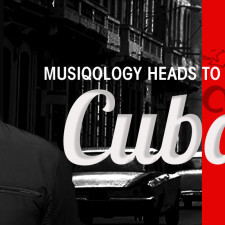

![[VIDEO] Black Music and the Aesthetics of Protest](https://musiqology.com/blog/wp-content/uploads/2015/03/onlynchings1-225x225.jpg)
